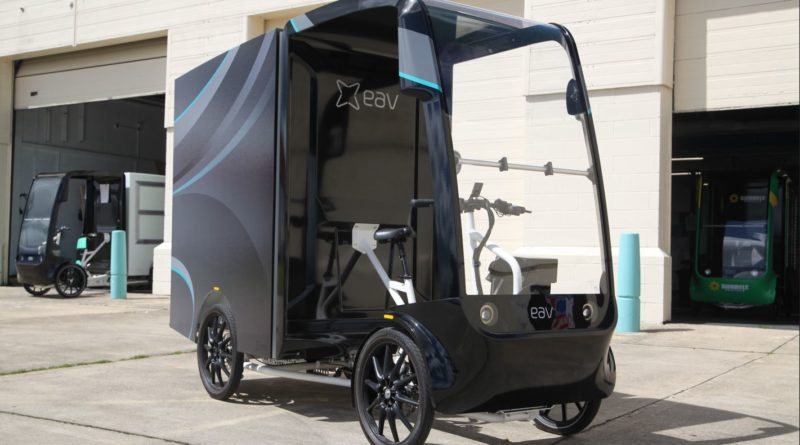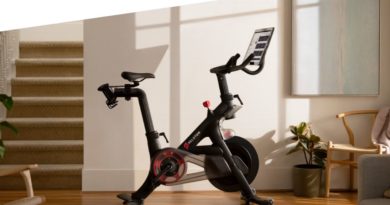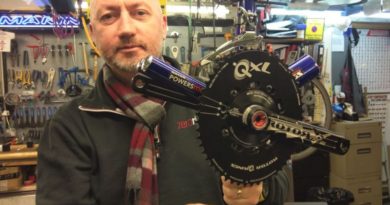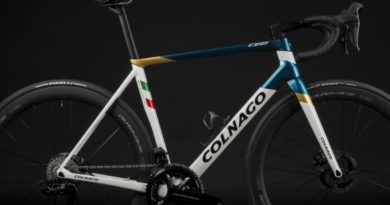How UK electric cargo bike maker EAV is quietly becoming a market leader
In business a little over three years, a very notable product clad in the livery of numerous logistics providers is turning heads. Who is electric cargo bike maker EAV? We sit down with founder Adam Barmby at his company’s airfield base to find out more…
A theme with some of the rapidly scaling cargo bike firms is getting one’s head down and securing those big contracts. Since the electric motor really opened up the scope of what’s achievable by cargo bike one of the lesser talked about, but totally revolutionary segments of the bicycle business has been catching attention outside of the bike world by giants tasked with moving goods.
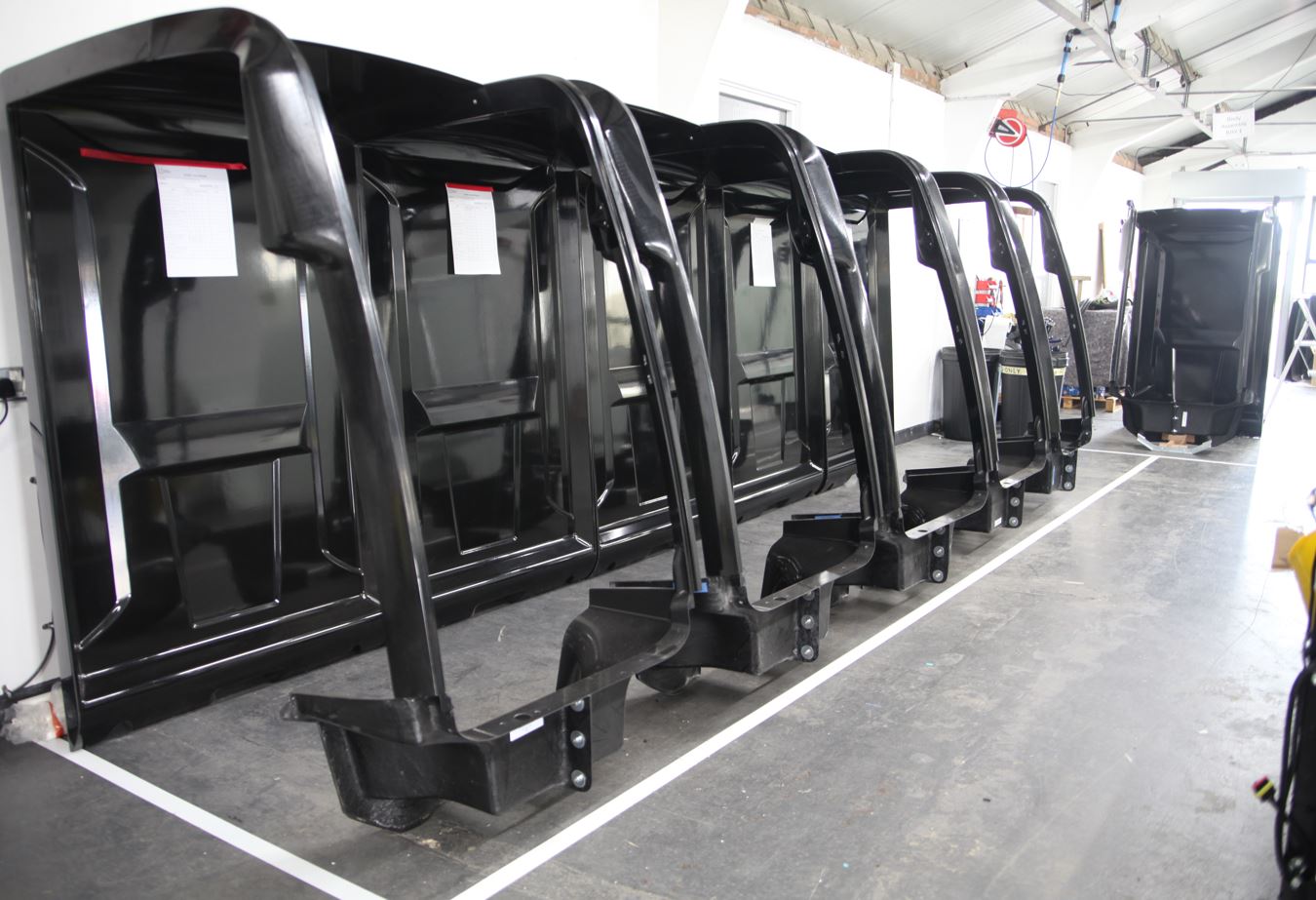
5The logistics industry is massive, adding £127 billion in Gross Added Value to the UK’s economy in 2021. As previously reported on these pages, London cargo bike business PedalMe has number crunched a global inner city ambition that would be worth billions in revenue annually, simply for being more efficient in urban spaces than vans. These numbers, until recently, have existed only in the imaginations of those in the bicycle business where it was more common to quip “how do you make a million in the cycling biz? Start with two million.”
Operating quietly, but quickly, Electrically Assisted Vehicles, better known as EAV, is another business making a name for itself. Based on an Oxfordshire airfield, where 80% of the bike and box is hand constructed, the sign in book at the company’s reception is eyebrow raising. We can’t name too many names, but think along the lines of rainforest-esque retail giants (that’s the clue, here’s the story) and automotive pioneers and you’re only scratching the surface. So, why is this little known UK manufacturer gaining so much traction?
Founder Adam Barmby gives his take, telling CI.N “Our business is directly replacing vans. Logistics giants know that whatever form these vehicles come in that our cargo bikes can be 200% more efficient in cities; and seconds count, more than we realised. That’s why there’s no doors at the side and a low step in cab for a quick mount. Time is money, a lot of money, for these companies. We have achieved with one customer 320 parcels in one day by bike.”
Somewhat choked by Covid and Brexit’s adverse affects, Barmby is quick to state that the business could already be much larger, “ten times larger”, he says. At three and a half years old its bikes have been seen with livery of some of the largest businesses in the UK, including Asda, DHL and DPD, to name a few. It’s not just delivery giants, however, Laundryheap are a prime example of a large-scale order from a medium sized business that has traded in its vans for 200 of the firm’s 2Cubed electric cargo bike vehicles – that’s a £2.6 million order and one that revolutionises a business’s ability to cut lead times, costs and pollution.
“Orders like these used to start with trials, but less and less convincing is required now and companies – having seen the calibre of customer putting in orders of their own – are now bypassing trial runs. That’s been very encouraging. We have been responsible in helping out our early customers who took that leap of faith and bought in early, their vehicles are coming back in now for updates,” says Barmby.
Getting to the stage where its electric cargo bike concept is proven, the Oxfordshire production line is turning out 150 units per month and the staff roster has grown to over 50 has taken plenty of focus. The business has only ever known a turbulent economy and it has started with Adam’s own cash, as well as a handful of early investors – most notably Pure Electric founder Adam Norris – to get to this stage. On the morning of our visit, Adam (Barmby) was taking calls from investors looking to get on board with the next stage of growth.
“We want to be in the region of thousands rather than hundreds of units by the end of next year, to do that we need a full-on automotive style production line. That means a partnership, a UK based one and one where the expertise already exists to scale up the volume quickly while maintaining a standard of quality more commonly associated with auto production,” explains Adam, looking across the airfield to a neighbouring business.
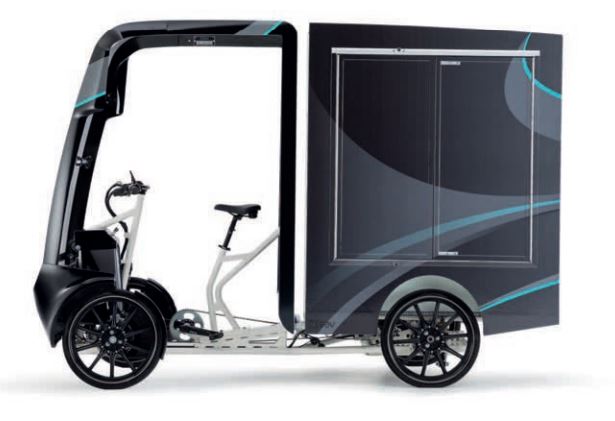 For those that made the journey to Munich for the IAA Mobility show it will have been obvious that the automotive world was flirting with the bike industry’s OEMs, promising automotive industry quality and efficiency at bike industry pricing. The worlds are colliding and as mentioned, 80% of the EAV product is proprietary. In progress will be a proprietary motor system, built specifically for high load transit. The limited amount of bike industry parts include Magura four-piston brakes, but even those are modified.
For those that made the journey to Munich for the IAA Mobility show it will have been obvious that the automotive world was flirting with the bike industry’s OEMs, promising automotive industry quality and efficiency at bike industry pricing. The worlds are colliding and as mentioned, 80% of the EAV product is proprietary. In progress will be a proprietary motor system, built specifically for high load transit. The limited amount of bike industry parts include Magura four-piston brakes, but even those are modified.
“We needed a handbrake and that simply didn’t exist, so we took on Magura’s brakes but created our own part to lock them,” he explains. These innovations, for a sector that is only just beginning to understand the needs of industrial scale fleet users, may come thick and fast. Having a research and development lab on site certainly helps EAV in pioneering around its customer’s needs; it works extremely closely with them too. One not to be named, but significant client spends three days a week on site codeveloping ideas, we’re told.
“In the UK we are, I believe, the only company able to produce an electric cargo bike, with four wheels, with large capacity, at volume,” says Adam, acknowledging that Mubea on mainland Europe are the closest competitor and a significant size of business. Apparently £1.6 million is likely to be spent on tooling within the next year to enable volume production at lower cost.
“With volume and a better equipped production we want to drive the price down from the current £12,000 below £10,000. At present we have a low cost, rudimentary tooling and a high-cost part. The next step is to flip this to a high-cost tool, but a low-cost part. This is how we bring in better margins and lower costs. I’m not super interested in making a quick buck here, I’d personally rather be in the workshop, but the goal here is to bring about a business that can revolutionise inner city transit of goods.”
Adam’s partner and Chairman in the business Nigel Gordon-Stewart lets on that in the week prior the Department for Transport were in close dialogue with the business with a view first to understanding more on the product and secondly, then shaping industry standards around a segment that at the present time has to align firmly to eBike regulations.
Nigel reveals “We would like a maximum half tonne weight limit for this kind of product, but with a bike standard this would be dangerous. What we’re doing is not an experiment so we want to be involved in creating new standards and at some point I think the pedals do become obsolete on this kind of vehicle; they’re there still just to satisfy the legislation. Ultimately the Government still forecasts population growth, so a product that reduces traffic is crucial and it’s not sensible to have two tones of vehicle out and about for short journeys. On that note, councils love us as they don’t have to be constantly repairing the roads due to damage from bikes.”
Not everyone is on side, we’re told and it is in fact the automotive world that has shown the greatest negativity, something Nigel puts down to an acknowledgement that this type of vehicle will eat into van sales at an increasing pace. There exist plans to create a larger vehicle, measuring 2 metres by 3 metres long with a 30mph capability too, bringing EAV’s vehicles further into the middle ground. That may not be all, EAV expects that in time too it will address personal mobility, something more specific for taking the kids to school that carries air conditioning and heating, familiar features to most of us. Two years the firm’s timeline for a consumer-facing development.
There is an expectation that a critical mass could build, as it has done on the B2B side. EAV has not done any significant marketing to date, instead letting its product do the talking and word has got round.
“When companies have realised that each week they are spending £75 on ULEZ, parking, parking fines and other costs excluding fuel there is a realisation that our option could pay for itself very quickly. I want to set out a leasing deal at approximately the same value of these weekly costs so that companies can save cash and have the environmental kudos to boot,” says Nigel.
Leasing is, admittedly, one of EAV’s remaining obstacles and a priority for the business to address. There also exists a need for a distribution network. Far from selling only in the UK, some units are shipped in a reduced interlocking format as far away as Australia and New Zealand.
“We wish to recruit dealerships in the UK and Europe so that we can satisfy local business volume and offer the chance to test ride on site. It will be multi-channel, within automotive and spacious bike dealers. Also worth mentioning given the efficiency of our vehicles, we’d love to get into the blue light services like ambulance first response. As we can travel on the road or cycle path the response time in urban areas could come down sharply,” concludes Nigel.
